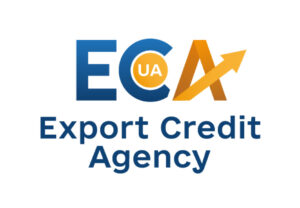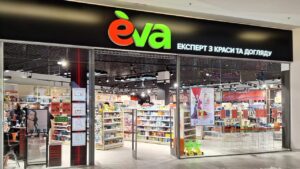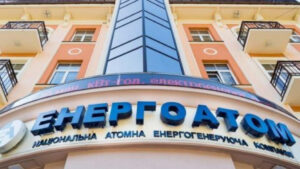
The Export Credit Agency (ECA) has received a certificate of compliance with the international standard ISO 37001:2016 — the Anti-Bribery Management System standard, according to the ECA website.
In addition, it is noted that ISO 37001:2016 is a globally recognized standard that defines the requirements for the development and operation of systemic mechanisms for preventing, detecting, and responding to bribery risks. It applies to organizations of any form of ownership and scale and covers both internal processes and interactions with contractors, partners, and intermediaries.
ISO 37001:2016 certification confirms that EKA has implemented and is effectively operating an anti-bribery management system that meets international requirements and has been independently assessed by an external certification body. The audit covered not only the existence of policies and procedures, but also their implementation, internal control, accountability, and response mechanisms.
“For international partners, financial institutions, and businesses, ISO 37001:2016 certification confirms that ECA’s activities are based on the principles of integrity, transparency, and good governance, and that its internal processes are designed in line with the best global practices in anti-corruption compliance,” the statement said.
The Export Credit Agency of Ukraine (ECA) is a state institution that supports non-commodity exports by insuring the risks of enterprises and banks. The agency insures foreign economic contracts, export credits, bank guarantees, and investment loans against military risks.

UKRNAFTA has completed a charity project to support the Boriviter Military School. Together with its customers, the company raised UAH 4,000,000, which will be used to strengthen military training programs.
As part of the project, UAH 5 from each coffee sold at UKRNAFTA gas stations was allocated to the purchase of drones, communication equipment, simulators, and other necessary equipment for training defenders.
For over three years, Boriviter has been training military personnel in 12 areas, including UAV control, military communications and electronic warfare, NRK, topography, and military management. During this time, instructors have trained over 34,000 soldiers who are now working to defend the country.
To promote this initiative, Ukraine’s largest gas station chain, UKRNAFTA, released a special series of 25 themed paper cups featuring images of cultural heritage sites from all regions of Ukraine and Crimea. Customers actively participated in collecting and even collecting these cups, which reminded them of their native places and pre-war good mornings.
“We are grateful to everyone who joined in. This project has very practical and quick results: more trained drone operators, more lives saved,” said Acting Chairman of the Board Yuriy Tkachuk.
JSC Ukrnafta is Ukraine’s largest oil production company and operates the largest national network of gas stations, UKRNAFTA. In 2024, the company entered into asset management with Glusco. In 2025, it completed an agreement with Shell Overseas Investments BV to purchase the Shell network in Ukraine. In total, it operates 663 gas stations.
The company is implementing a comprehensive program to restore operations and update the format of its network of gas stations. Since February 2023, it has been issuing its own fuel vouchers and NAFTAKarta cards, which are sold to legal entities and individuals through Ukrnafta-Postach LLC.
The largest shareholder of Ukrnafta is Naftogaz of Ukraine with a 50%+1 share.
In November 2022, the Supreme Commander-in-Chief of the Armed Forces of Ukraine decided to transfer to the state the corporate rights of the company that belonged to private owners, which is now managed by the Ministry of Defense.

France’s Schneider Electric plans to buy back €2.5-3.5 billion worth of its own shares by the end of 2030.
The company expects to increase the profitability of its operations amid the development of the artificial intelligence market and growing demand for electrification solutions.
According to a press release from Schneider Electric, the company aims to increase its adjusted EBITA margin by 250 basis points in 2026-2030. Its previous target was to increase this figure by 50 basis points in 2024-2027.
Schneider Electric will seek to “capitalize on opportunities in the areas of electrification, automation, and digitalization,” said its CEO Olivier Blume, whose words are quoted in a press release published ahead of an investor event.
The company forecasts average annual revenue growth of 7-10% through 2030. In addition, it plans to sell assets with proceeds of €1 billion to €1.5 billion during this period.
Schneider Electric is a manufacturer of distribution and protection equipment, automation devices for the energy sector, and other equipment.
Its solutions play an important role in ensuring the operation of data centers.
Schneider Electric shares added 2.5% in price on Thursday trading in Paris. Since the beginning of this year, their value has fallen by less than 1%.

Traffic to the EVA.UA online store increased by 23% during Black Friday (from November 13 to December 2), compared to the same promotional period in 2024, with the average check increasing by 17%, according to the company’s press service.
“During Black Friday, traffic to the EVA.UA online store increased by 23% compared to the same period in 2024. On November 28 alone, it increased by 30%. On that day, we achieved a record attendance of over 1 million visits,” said Ruslan Sazonov, head of marketing for the EVA.UA online store.
At the same time, the average daily number of online orders during Black Friday increased by 25% compared to last year’s figure.
The average check of EVA.UA customers increased by 17% compared to last year’s Black Friday period. In EVA beauty stores, it increased by 12%. At EVA, growth peaked at 10%.
The largest sales growth across all channels was seen in the categories “Perfumes,” “Face and Body Care,” and “Hair Care.” The EVA beauty advent calendar became the absolute sales leader among the entire range on EVA.UA.
Vasylina Petlytska, director of the EVA beauty business line, noted the pronounced interest of buyers, especially from the western region, in gift sets. “Obviously, many people used Black Friday as an opportunity to buy gifts for St. Nicholas Day at a bargain price,” she said.
Rush LLC, which manages the EVA chain, was founded in 2002. As of early 2025, the chain had 1,109 stores in operation.
According to YouControl, the owner of Rush LLC is listed as Incetera Holdings Limited (100%), a Cypriot company, and the ultimate beneficiaries are Ruslana Shostak and Valeria Kiptika.
At the end of Q3 2025, Rush’s net income increased by 18.6% compared to the same period last year, to UAH 22.916 billion. Net profit decreased by 14.7% to UAH 1.7 billion.

JSC NAEK Energoatom analyzed previously announced open tenders, as a result of which the company initiated the cancellation of five tenders for purchases totaling approximately UAH 650 million.
“In order to update the expected purchase price, taking into account the reduced payment terms, the cancellation of five tenders with a total value of approximately UAH 650 million has been initiated,” NAEK reported on Thursday.
Energoatom noted that the company continues to take measures to optimize and improve business processes in the field of procurement.
“In order to prevent a selective or subjective approach to determining the order of payments under concluded contracts, a corresponding system algorithm is being developed,” NAEK said.
The company has also set up a commission to analyze and prioritize production payments.
As previously reported by Energoatom, in order to strengthen cooperation with contractors and taking into account the economic situation in Ukraine, NAEK has significantly reduced the payment deadlines in draft contracts for the supply of goods, performance of work, and provision of services during the period of martial law.
“The updated approach to the formation of contractual terms for setting payment deadlines is related to a review of the financial burden on the company,” the company explained.
Energoatom asserts that for the stable operation of the company in conditions of increased challenges, it is also important to take into account the criticality, importance, and urgency of procurement and strict adherence to the principles of public procurement defined by Ukrainian legislation.

JSC Kramatorsk Heavy Machine-Building Plant (KZVV, Perechin, Zakarpattia region), almost 97.7% of whose shares are owned by former MP Maksym Yefimov (Restoration of Ukraine group), earned nearly UAH 1.379 billion in net profit in January-September this year, twice as much as in the same period in 2024.
According to the company’s published financial report, its net income for this period increased 2.6 times to UAH 34.542 billion.
As reported, in the first half of this year, the company increased its net profit fourfold compared to January-June 2024, to UAH 1.233 billion, and its net income 3.5 times, to UAH 21.446 billion.
Thus, in the third quarter of this year, KZVV reduced its net profit by 2.5 times compared to its July-September 2024 figure – to UAH 146.6 million, but increased its revenue by 85% – to UAH 13.1 billion.
As reported, KZVV, which was relocated from Kramatorsk to Perechin in the summer of 2022, manufactures, among other things, wind turbines (WTGs) for Friendly Wind Technology.
KZVV specializes in universal special-purpose machine tools for the energy, metallurgical, oil and gas, machine-building, and railway transport industries, as well as machine tools for single and small-batch production.
Back in 2022, KZVV’s net income was UAH 119.38 million, and its net loss was UAH 134.68 million.
At the beginning of 2025, the plant employed almost 2,000 workers, compared to 296 in 2022.